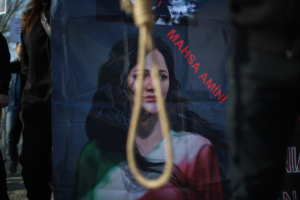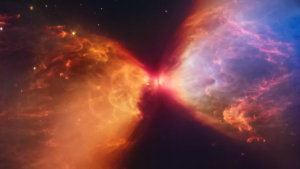Listen Below
https://www.npr.org/player/embed/1049054141/1054032300
Soon after the Columbine High School shooting in 1999, senior leaders of the National Rifle Association huddled on a conference call to consider canceling their annual convention, scheduled just days later and a few miles away.
Thirteen people lay dead at a high school in Colorado. More than 20 were injured. Images of students running from the school were looped on TV. The NRA strategists on the call sounded shaken and panicked as they pondered their next step into what would become an era of routine and horrific mass school shootings.
And in those private moments, the NRA considered a strikingly more sympathetic posture toward mass shootings than the uncompromising stance it has taken publicly in the decades since, even considering a $1 million fund to care for the victims.
NPR has obtained more than 2 1/2 hours of recordings of those private meetings after the Columbine shooting, which offer unique insight into the NRA’s deliberations in the wake of this crisis — and how it has struggled to develop what has become its standard response to school shootings ever since.
“Everything we do here has a downside,” NRA official Kayne Robinson says on the tapes. “Don’t anybody kid yourself about this great macho thing of going down there and showing our chest and showing how damn tough we are. … We are in deep s*** on this deal. … And so anything we do here is going to be a matter of trying to decide the best of a whole bunch of very, very bad choices.”
The tapes of the NRA discussions were recorded secretly by a participant and shared on the condition that the participant’s name not be divulged. NPR has taken steps to verify the tapes’ authenticity, including by confirming the identities of those speaking on the tapes with two sources and comparing the voices on the calls with publicly available audio.
In addition to mapping out their national strategy, NRA leaders can also be heard describing the organization’s more activist members in surprisingly harsh terms, deriding them as “hillbillies” and “fruitcakes” who might go off script after Columbine and embarrass them.
And they dismiss conservative politicians and gun industry representatives as largely inconsequential players, saying they will do whatever the NRA proposes. Members of Congress, one participant says, have asked the NRA to “secretly provide them with talking points.”
Asked for comment, a current NRA spokesperson said, “It is disappointing that anyone would promote an editorial agenda against the NRA by using shadowy sources and ‘mystery tapes’ in order to conjure up the tragic events of over 20 years ago.”
The Columbine shooting in Littleton, Colo., was at the time the deadliest school shooting since the late 1960s, threatening to provide a tragic backdrop to the NRA’s previously scheduled annual convention in Denver. Billboards advertising a “World Class Guns & Gear Expo” already peppered the city. Meanwhile, hate mail began arriving at the NRA’s offices.  Enlarge this image
Enlarge this image
A school bus in 1999 passes a billboard advertising the NRA’s annual meeting in Denver, previously scheduled to take place just 10 days after the shooting at Columbine High School.Kevin Moloney/Getty Images
One day after the shootings, the NRA’s top executives, officials, lobbyists and public relations strategists all scrambled on to a conference call to deal with the crisis. Executive Vice President Wayne LaPierre is on the line, as is longtime NRA lobbyist Marion Hammer and advertising strategist Angus McQueen, among others. The dilemma they face is apparent in their conversations.
“At that same period where they’re going to be burying these children, we’re going to be having media … trying to run through the exhibit hall, looking at kids fondling firearms, which is going to be a horrible, horrible, horrible juxtaposition,” says NRA lobbyist Jim Baker on the conference call.
Listen: “A horrible, horrible, horrible juxtaposition”
https://www.npr.org/player/embed/1049054141/1053657335
“That’s one very good argument, Jim,” replies PR consultant Tony Makris. “On the other side, if you don’t appear to be deferential in honoring the dead, you end up being a tremendous s***head who wouldn’t tuck tail and run, you know? So it’s a double-edged sword.”
The NRA’s public relations gurus weren’t just worried about the propriety of the gun show, either. Parties and banquets were planned — even an appearance by a comedian. They struggled with whether to cancel the convention entirely, proceed with a pared-down event or just go ahead as planned.
The NRA considered other options as well, as illustrated by this exchange:
NRA OFFICIAL KAYNE ROBINSON: Is there something concrete that we can offer? Not because guns are responsible, but because we care about these people? Is there anything? … Does that look crass or …
NRA LOBBYIST JIM BAKER: You mean the legislative?
ROBINSON: No, I’m talking about something concrete …
PR CONSULTANT TONY MAKRIS: Like a victims fund …
ROBINSON: Yeah, we create a victims fund, and we, uh, we give the victims a million dollars or something like that, uh. … Does that look bad, or does it look uh …
MAKRIS: Well, I mean, that can be twisted too. I mean, why … why are you giving money? You feel responsible?
BAKER: No. … Well, you’re — true. It can be twisted, but we feel sympathetic and …
NRA SPOKESPERSON BILL POWERS: Respectful.




